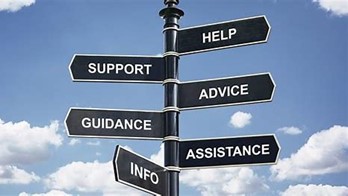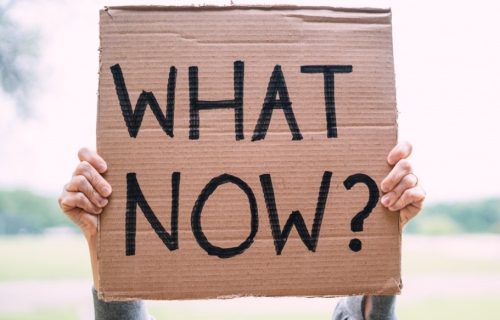
Don’t forget your physical health!
In this article Jayne Rhodes from J2People explores the equal importance of physical and mental health, with her own recent experience.
I’m writing this blog as we mark ‘World Mental Health Day’ this week. The timing is a coincidence, not purposeful, but as I lie here in bed with ice on my back and cushions supporting my leg, I wanted to share my story and help others think about the importance of our physical well-being as much as our mental health.
Over exertion
I have always been active and generally of good health, and for that alone I am very grateful. However, everything changed for me very quickly a couple of weeks ago and I have had plenty of reflection time since.
In brief, I ran a half marathon at the end of September, and on the morning of the run I knew I already had a niggle of discomfort from training the week before. What I didn’t know was I had a slightly trapped nerve in my L5 disc. Of course, I went ahead with the run and have suffered the consequences of acute pain ever since.
What followed was a gruelling few days of being incapacitated with pain and a night in A&E. I now have a 2-3 month recovery process ahead of me, slowly walking with crutches and managing numbness in my hands and feet.
Nurture mind and body
However, I’m not sharing my injury for sympathy. I’m sharing it as a reminder of how complex and intricate the human body is, and how quickly we are impacted if we don’t look after ourselves. I shouldn’t have run on that day, but I did.
As we remind ourselves of the importance of our mental health this week, we must remember that it is equally important to look after our physical health too. The two go hand in hand.
The Chartered Institute for Personnel and Development (CIPD) has recently analysed rates of absence in more than 900 organisations. The research, as reported by the BBC on 26th September 2023, found that staff took on average 7.8 sick days in the past year, up from 5.8 before the pandemic. The study found the main reason for absences were musculoskeletal injuries and mental ill health.

The importance of support
At J2People we coach and advise on how to manage absence in a supportive, open, honest and compassionate way. Suddenly I am now in direct receipt of needing that support, and I am reminded of what is critical to help me feel positive and get better:
- Support from home. I have this from my wonderful family and friends, giving me the strength I need.
- Support from work. My business partner, Jane Pimm, has been amazing. Without a second thought she has supported me in line with our core philosophy of putting people first. Jane has taken the time to talk to me, listen, empathise and understand. She has taken control of my work and given me the time I need to rest. She is focussed on what is important for my long-term recovery, giving me positive energy to get better.
- Well-being plan. Getting expert health advice and a plan for my recovery is key.
My reflections also remind me that managing absence is a two-way process. It is so important for the manager to start with the belief that the individual is unwell, and they want to get better and return to work. This premise builds trust and becomes the foundation for the individual to do everything they can to help themselves and to be honest about the circumstances.
J2 People’s approach to absence management
At J2People, our core philosophy is that if you put your people first, success will follow. We believe in Positive People – approaching people with trust, openness, maturity and compassion.
This principle is embedded in everything we do, including our support with absence management. Our approach to absence management is starting conversations with a presumption of truth. Your employee is often the best person to tell you what’s going on, and so taking the time to haveopen communication is key. Getting expert health advice where needed is important, and if your employee is on long-term sick leave, don’t forget them – they are still part of the team.
Compliance and processes matter; however this should be complementary to a fair, inclusive, pragmatic approach to managing absence tailored to the circumstances at hand. We foster a culture in which people thrive, performance is optimised, risk minimalised and costs reduced.
We have fully embedded these principles into our support to enable your employees to feel supported and to able to fully return to work and thrive where possible.
Let’s talk
J2People can help you with managing absence in the following ways:
- We coach and advise Managers and HR in how to manage absence positively.
- We have a gold standard set of 26 off-the-shelf, legally compliant HR Policies available for you to buy, including the following:
- Absence Management
- Wellbeing
- The Menopause
- Drugs and alcohol
- Flexible working
Our policies are concise and practical, written directly to your employees, easy to read, comprehensive, legally compliant, and developed and published by one of the UK’s leading employment law barristers in April 2023. You can access the full list of policies at HR Policies (j2people.co.uk).
- We provide best practice toolkits for both Managers and employees, providing how-to guidance and all of the templates you need to manage absence.
If you would like to know more about how we can support you, please get in touch at hello@j2people.co.uk or visit www.j2people.co.uk
Don’t forget
I hope this blog has reminded you of the importance of looking after your physical wellbeing as much and your mental health. In addition, the approach you take to managing absence will make all the difference to how your employee feels and the chances of a successful return to work.
And as for me, there will be less running(!), and a shift to more strengthening exercise, and a full return to J2People!


